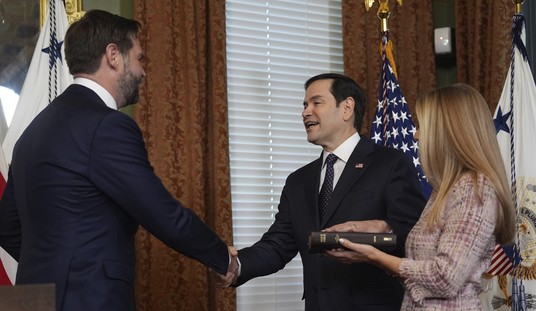When Americans are asked what they define to be the nation’s most pressing security challenges, the Islamic State in Iraq and Syria (and Egypt, and Yemen, and Libya, etc.) is perhaps foremost on their minds. But the threat posed by ISIS is a near-term one. In the longer term, the ascension of regional powers and the threat they pose to their neighbors is of most pressing concern. Through inaction and indifference, President Barack Obama’s failure to safeguard the post-Cold War order and the relative global peace that has accompanied it has made the world a markedly more dangerous place.
Americans seem to be aware of the president’s failure to steward the country’s national security priorities, and they are expressing their dissatisfaction in surveys. The Pew Research Center recently found that Republicans have a 20-point advantage when respondents are asked which party would do a better job of “dealing with the terrorist threat at home.” When asked about foreign policy generally, the public gives the GOP a 13-point advantage over their Democratic counterparts.
“This is the first time the GOP has had a significant advantage on this issue since 2002,” Pew revealed.
In fact, with the exception of the state of the economy and the issue of health care, both of which remain static, the public’s perception of which party is best equipped to handle a variety of issues is uniformly moving in the GOP’s direction. But it is the public’s take on the state of America’s approach to foreign policy that is the most striking and perhaps the most salient ahead of the 2016 presidential election.
Republicans lost a traditional edge on the issue of foreign affairs as the Iraq War grew increasingly unpopular at the close of the last decade. “At the end of [Obama’s] first term, the two parties were trusted roughly evenly on foreign policy,” FiveThirtyEight’s Harry Enten observed in the summer of last year. “But over the past two years, crises — including the fallout over the 2011 attacks in Benghazi, Libya; Russia’s invasion of Ukraine this year; and the recent resurgence of conflict in Iraq — have come. Republicans regained their advantage.”
Today, the public is resoundingly more confident in the GOP to manage America’s foreign affairs than they are Democrats. This is entirely based upon a rejection of President Barack Obama’s approach to international affairs. Modern presidents are afforded a significant amount of deference from the legislative branch in their pursuit of foreign policy objectives, and it is perhaps unsurprising that Democrats would suffer as Americans sour on how the party’s titular head has handled that issue. But the fact that Republicans are benefiting from Obama’s bad fortune on this issue is interesting, particularly considering that there is no such thing as a Republican foreign policy.
Among presidential aspirants, favored doctrinal approaches to international affairs diverges wildly. Sen. Rand Paul’s (R-KY) preferred policy of disengagement and retrenchment could not be more dissimilar from Sen. Marco Rubio’s (R-FL) embrace of a robust defense of American interest abroad. The remaining ten likely Republican presidential candidates hold convictions about the appropriate conduct of America’s affairs overseas that fit somewhere along this wide spectrum of policy prescriptions. Americans are not yet endorsing a GOP vision for the conduct of U.S. foreign policy because no such thing exists, and it will not exist until the party has settled on a nominee. During that process, Republican voters will set the parameters of the debate on foreign affairs and define the Republican approach to challenges approach, but the GOP’s foreign policy remains an amorphous concept today.
Still, the public’s rejection of the president’s approach to foreign affairs is noteworthy, and the fact that the majority of Republican voices today sound far more like Rubio than Rand provides some clues as to the type of approach to foreign policy the GOP – and the public – is ready to embrace.










Join the conversation as a VIP Member